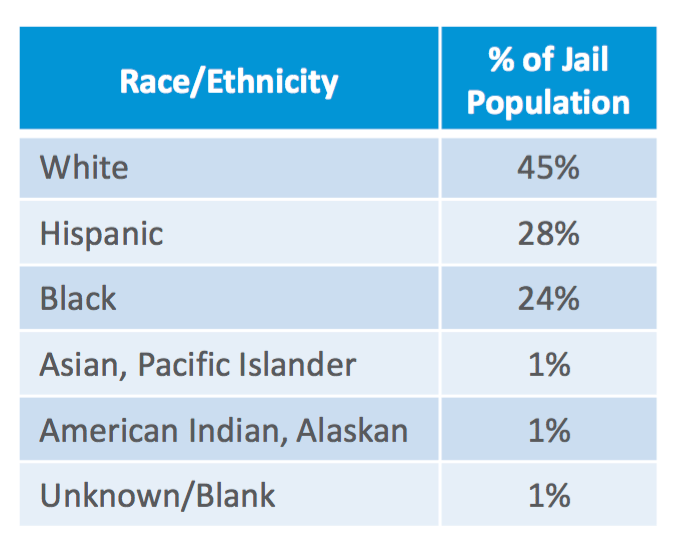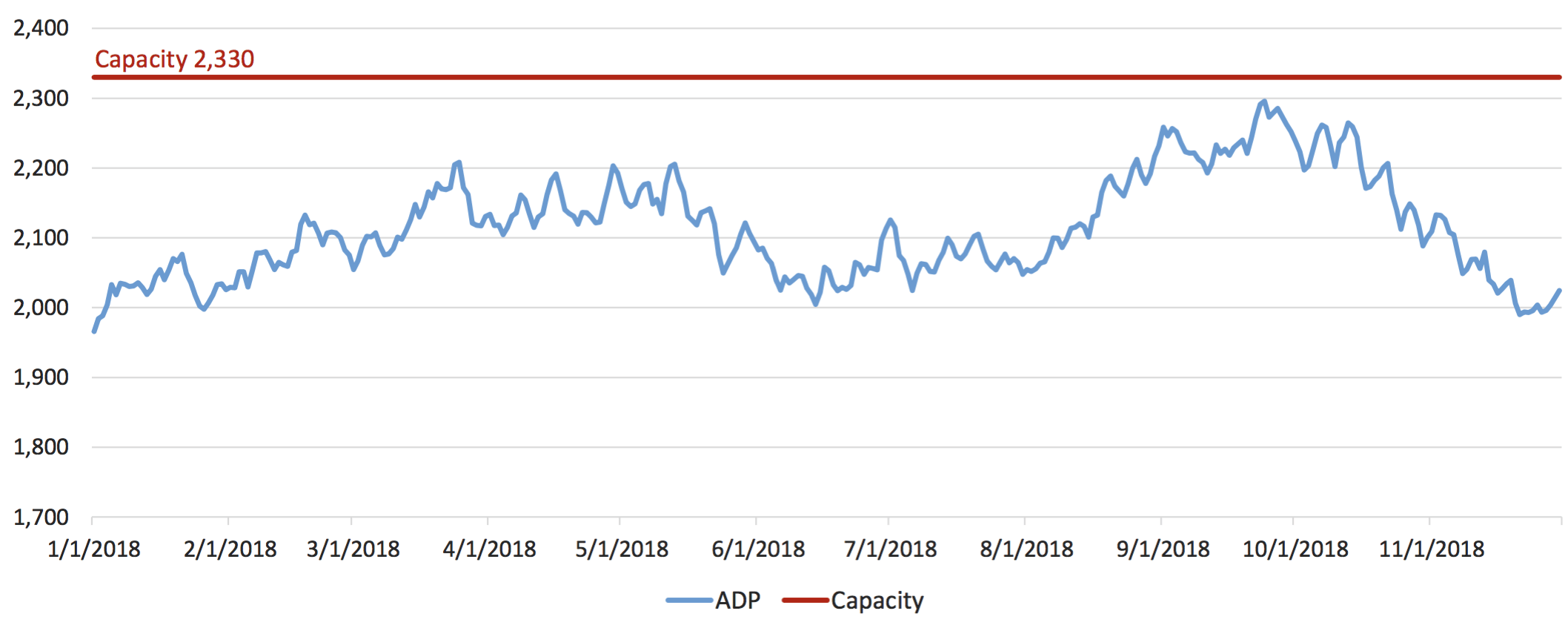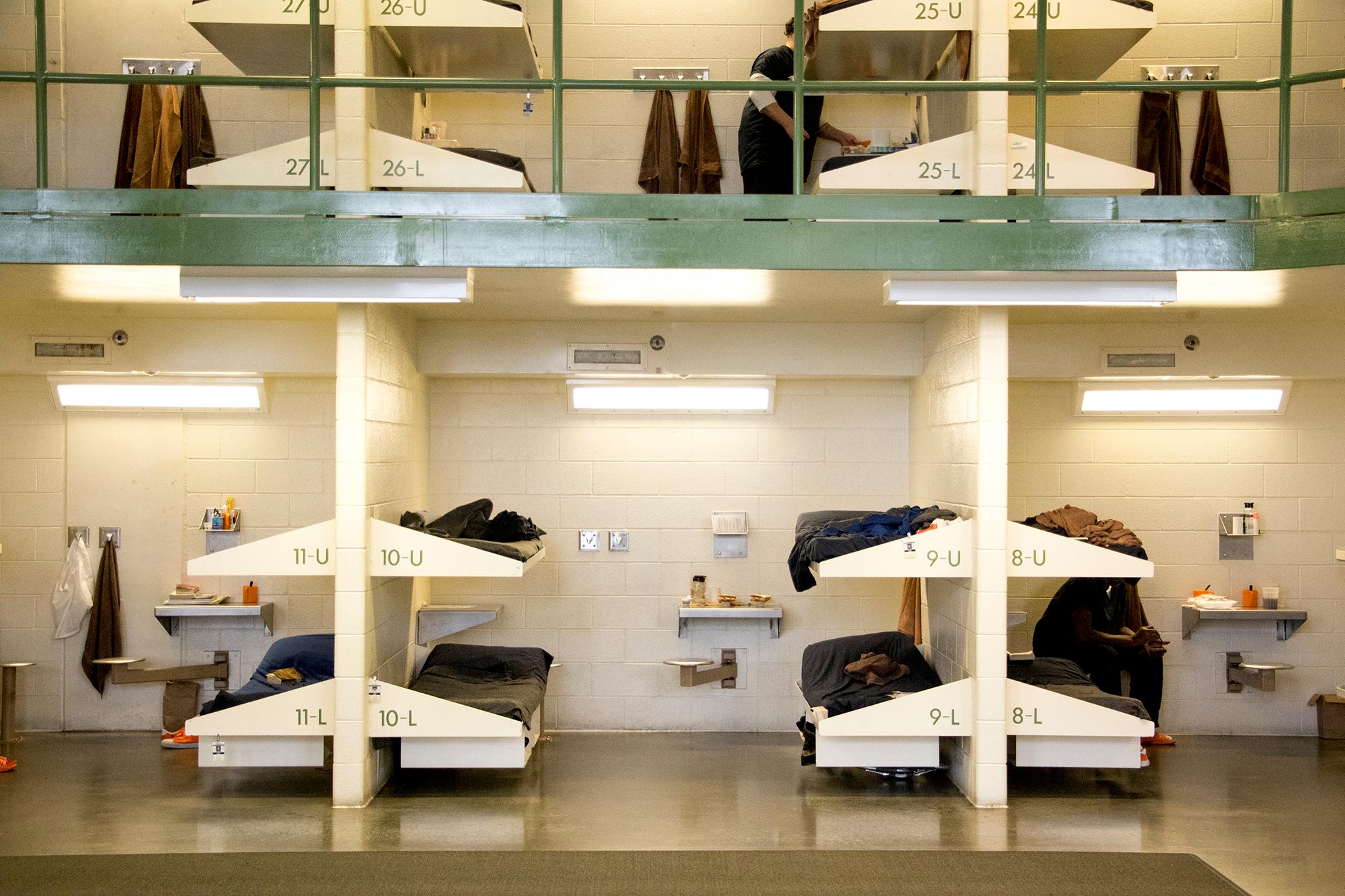Data from the Denver Department of Safety reveals an inmate population averaging more than 2,100 people a day, with black inmates comprising a disproportionate chunk of people behind bars, and a whole lot of people suffering from mental health problems.
It's the first time this data has been publicly disclosed, according to DDS.
"For the first time you're gonna get a deep dive," data specialist Armando Saldate III told the Denver City Council's Safety, Education, Housing and Homelessness Committee on Wednesday before presenting data on the system.
African Americans comprise just 10 percent of Denver's population, according to the U.S. Census Bureau, but 24 percent of its inmates. White people make up 45 percent of Denver's jail population yet they're underrepresented compared to the city's makeup, which is 81 percent white. The share of Denver's Hispanic inmates is more or less in line with the city's demographics.

No more than 2,330 people can fit in the county jail and city detention center at a given time. Denver's facilities skimmed that ceiling in October with about 2,300 inmates. The city has averaged 2,159 prisoners per year between 2012 and 2017, and the department projects an average daily population of 2,110 this year.
"Our goal should be zero, but that's not realistic and this ain't utopia," City Councilman Paul Lopez said.

Inmates stay at the county jail, where convicted people serve sentences, for an average of 44 days. The Denver Detention Center hosts people for an average of two weeks, often while awaiting trial. The mean age of all inmates is 36.
About half of all inmates are dealing with some sort of mental health problem like psychosis or depression, the data show. They're likely to stay almost 30 days longer than their peers without mental issues.
Mental health professionals from Denver Health assess every person booked, according to DSD, but that doesn't necessarily equate to ideal treatment. Jails aren't doctors offices, which is one reason the public safety department launched an initiative to curb the jail population by intervening with mental health treatments before someone is booked or connecting the person to services upon release.
Prisoners, of course, aren't the only ones in jail -- sheriff's deputies are inside as well. Inmates have assaulted 96 deputies 122 times this year, according to an email obtained by Denverite from Sheriff Patrick Firman to DDS employees. Eighty-five percent of those inmates were "on an active mental health alert," Saldate said.














